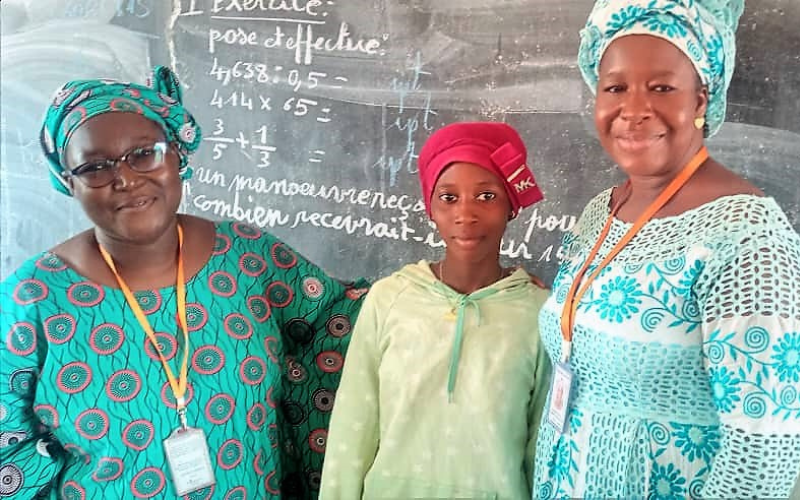By Michael Messenger, President and CEO
Someday, I hope all parents will be able to feel the pride and joy I felt last May as I watched my daughter, Annie, walk across a stage to receive her university diploma. She faces a bright future ahead of her, and I’m excited to see the path she’ll carve for herself.
In contrast, many girls around the world won’t even make it to their primary school graduation—and early or forced child marriage is a major factor.
Child marriage is pulling girls out of school to become brides far too soon—but women and girls are leading the charge to push back against this issue.
Women like Thérèse Mounkoro, head of World Vision Mali’s child protection program called DREAM, are at the forefront of ensuring girls in her community have the chance to realize their full potential.
At the end of 2022, I had the privilege of visiting Thérèse at one of our communities in Mali and talked with her about why child marriage continues to be a problem in her country. Thérèse has always been a trailblazer. In Mali, where over 50 per cent of girls get married before turning 18, Thérèse was the only girl in her village to get to the sixth grade and beyond in her schooling.
I was struck by her own personal experiences seeing friends forced into child marriages.
“Today, if you see them compared to me, you’ll say that they’re my mothers,” she said. “They aged more quickly than me, even though we were classmates, due to their early marriage.”
Thérèse understands firsthand the value of education for girls in Mali.
“Marriage doesn’t solve anything for our daughters,” she said. “Financially, they will be dependent, but if we let them study until they finish school and get a job, it will be beneficial for them and those close to them, as well as for society and their parents.”
Ending child marriage takes a village
The DREAM project’s holistic approach to tackling the problem of child marriage was inspiring. Thérèse and her team started by equipping religious leaders in the community with knowledge on the harm caused by child marriage.
“In our societies here, marriage cannot bypass religious involvement,” Thérèse said, adding that religious leaders are often have the final say on the validity of a marriage.
 The DREAM project has reached 18 schools in Mali with infrastructure and material support, such as personal hygiene kits for girls, handwashing kits and clean, private latrine blocks.
The DREAM project has reached 18 schools in Mali with infrastructure and material support, such as personal hygiene kits for girls, handwashing kits and clean, private latrine blocks.
Her team trains local health workers to raise awareness on the health risks associated with child marriage, such as high-risk early pregnancy and other hygiene and sanitation risks. And of course, the team also equipped teachers to spread awareness, helping parents become more knowledgeable too.
So far, the DREAM project has reached over 400,000 people with their awareness programs and directly saved 16 girls from child marriage through community involvement—girls who went on to become university students today.
Coming back to Canada
After returning from Mali, I’m ever more reminded to remember the stories and needs of girls and women from beyond our borders. Right now, Mali continues to face struggles with conflict, the lingering effects of COVID, rising costs of food and droughts caused by climate change, all of which increase the risk of child marriage for girls across the nation.
Supported by the Government of Canada and the support of generous Canadians, World Vision has been working with communities in Mali since 2008. Our teams have trained over 23,500 children and adults on child protection, including gender-based violence, positive parenting, children’s rights and early marriage.
Every girl deserves the chance to go to school—and child marriage should never take that chance away.
Learn more about our work in Mali